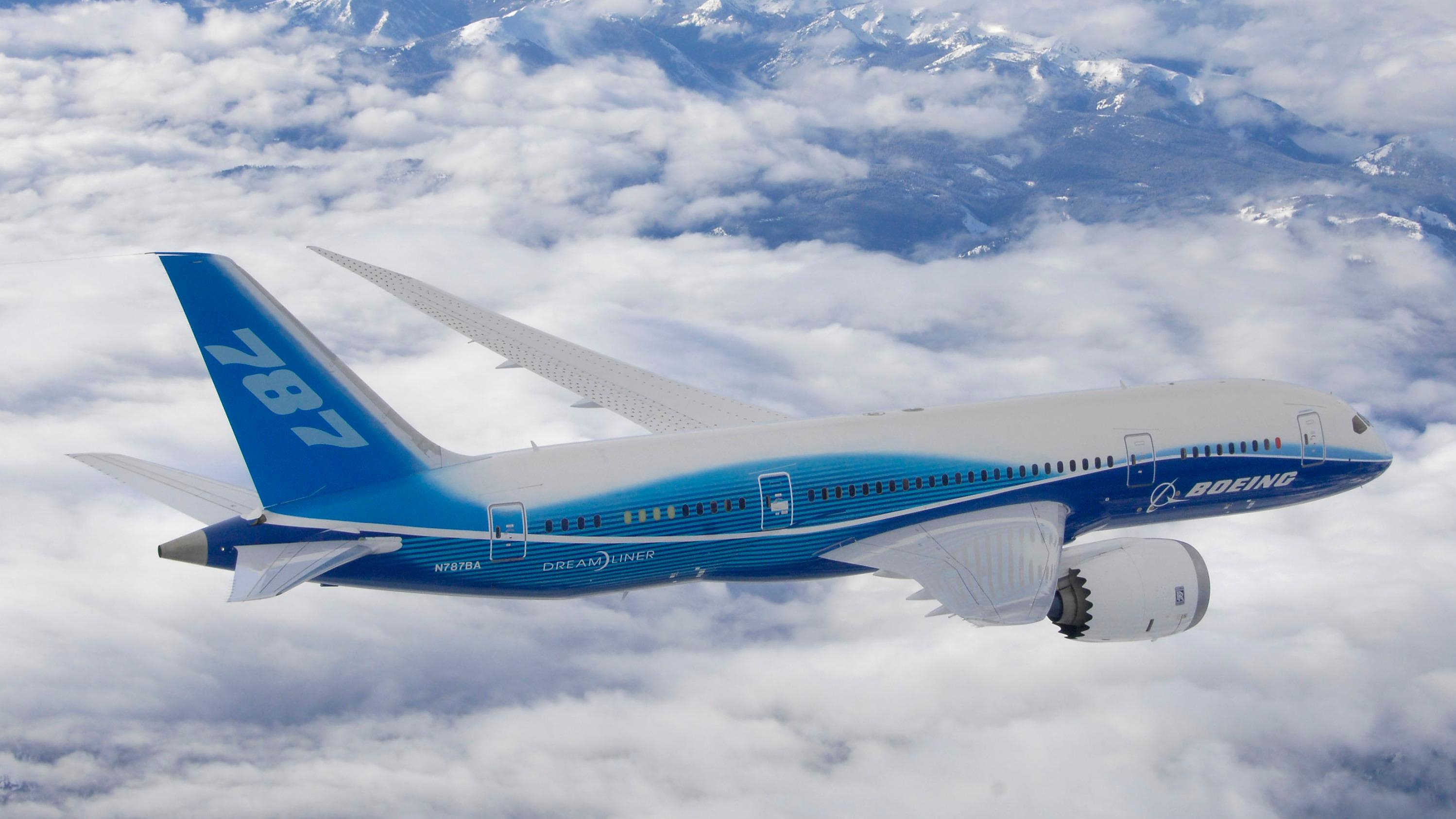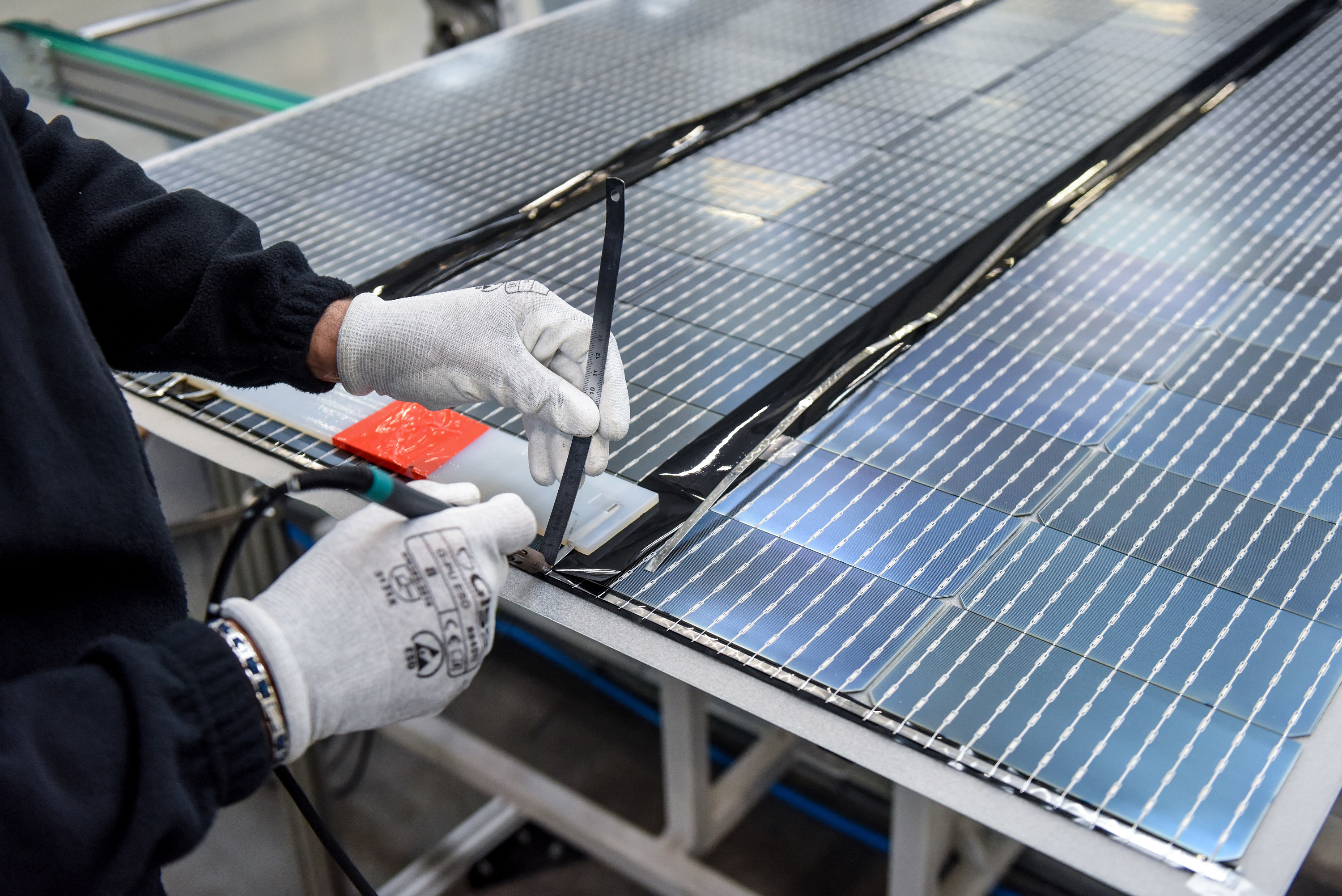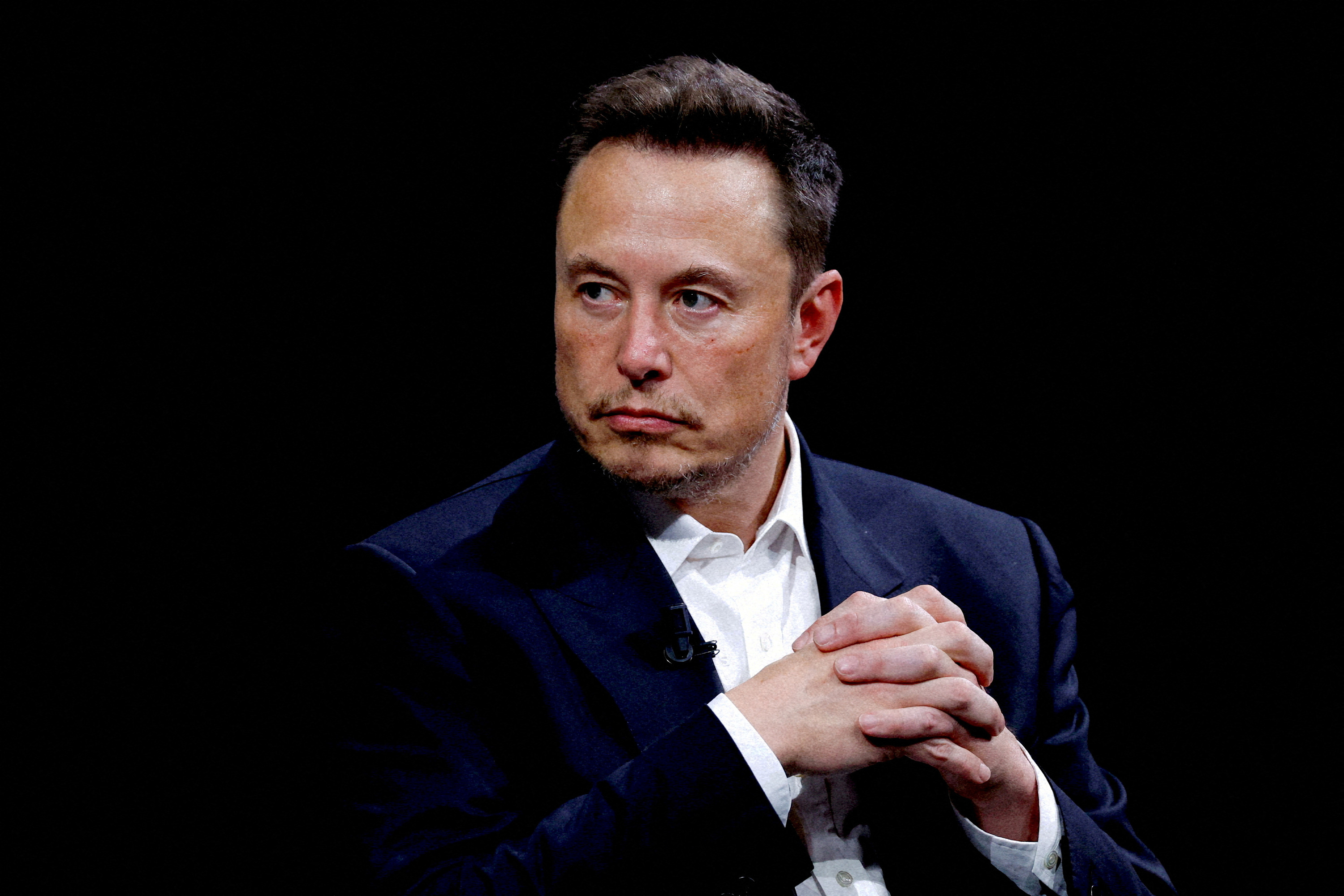WORLD: Mr. Hofreiter, we are currently hearing as much worrying news in one day as we used to in a month or a whole year. Are you still coming?
Anton Hofreiter: Yes, it's frightening what's happening all at once. When you think of the electoral victory of the extreme right in Italy, the attacks on the pipelines, the mock referendums in eastern Ukraine. If you look at what's going on in the Western Balkans. And I'm only talking about Europe. A terrible war is raging in northern Ethiopia, which has now killed half a million people. We hardly notice that.
The chairman of the European Committee, Anton Hofreiter (Greens), is pushing for the Ukraine to be supplied with German tanks. In the WELT interview he explains one possible way.
Source: WORLD
WORLD: There is lively speculation about the destruction of the pipelines, many believe that Russian perpetrators were involved. Former Polish Foreign Minister Radoslaw Sikorski, on the other hand, points in the direction of the USA. What do you think is likely?
Hofreiter: You already know quite a bit. It is known that it was an attack, not a natural event. It is known that an act of this magnitude requires a state actor. Only a few qualify. In the current conflict, this chaos is helping Putin the most. Russia has shown many times that it is completely unscrupulous. Just think of the murder in Tiergarten or the poisoning of a former double agent and his daughter in Great Britain.
WORLD: The escalation screw continues to turn. After the fake referendums in eastern Ukraine, Putin declared the occupied territories to be Russian territory. Now the Russian military doctrine is taking effect to ward off nuclear attacks in case of doubt. Former Chancellor Angela Merkel (CDU) advises taking this threat very seriously. What does that mean for the West's course in this conflict?
Hofreiter: You have to react very, very calmly and not allow yourself to be intimidated. These threats are aimed at the western population and western politicians in order to limit our options for action. This is part of psychological warfare.
WORLD: But the unthinkable suddenly seems to have become thinkable, doesn't it?
Hofreiter: We're not stuck in Putin's head. But India and China, which have so far stood by Russia, oppose the use of tactical nuclear weapons in Ukraine. In this case, Russia would be completely isolated internationally. So I don't think that's going to happen. Viewed coolly, the political damage to Putin would far outweigh the military gain. The West must not let Russia get away with this nuclear blackmail. Giving in would encourage him to be even more aggressive.
WORLD: The Ukrainian President Volodymyr Zelenskyj has just repeated his demand for the delivery of heavy weapons to Berlin. The German hesitation apparently has something to do with Putin's threats, right?
Hofreiter: I've supported this demand for a long time and I don't understand why we don't deliver more. We've been supplying Ukraine with heavy weapons for a long time. Why should self-propelled howitzers be less aggressive than a Leopard 2? We should take responsibility for Europe, together with Spain, which is ready to supply Leopard tanks.
WORLD: So far, only tanks from old Soviet stocks have been delivered. At some point they will all be shot to pieces or no longer usable. Then the question of the supply of western types of tanks is inevitable.
Hofreiter: I see it that way too. Poland has so far delivered 230 main battle tanks. The West must continue to guarantee that Ukraine can defend itself. So we will have to deliver.
Experts assume that the leaks in the gas pipelines were caused by explosive devices. Measuring stations registered two clear detonations. Marie-Agnes Strack-Zimmermann (FDP) suspects Russia to be the mastermind.
Source: WORLD
WORLD: The conflict with Russia is now taking place on many levels. As a tangible war in Ukraine, as an energy war with Germany and the EU, but also through political influence outside of Russia. You have just visited several Western Balkan countries. How big is Putin's influence there?
Hofreiter: Unfortunately, this influence cannot be overlooked in Serbia. Serbian President Aleksandar Vucic aspires to join the European Union, but at the same time wants to be an ally of Russia. Then he will have to make a decision. The Serbian government is inciting ethnic unrest in Kosovo and Bosnia-Herzegovina. The EU must not accept that. We have to be much tougher on Belgrade and say: You won't get through with your little games. We are currently repeating the mistakes we made in the past with Putin: we tolerate these provocations and do not look closely.
WORLD: Can we really influence the complicated situation in the Balkans?
Hofreiter: I think so. Germany has a sensationally good reputation among the population there. This really amazed me on my trip. We have the opportunity to support democratic movements there and to put pressure on the corrupt and criminals.
WORLD: The EU accession process is also stagnating in the Western Balkans because neighboring countries are still hostile and block each other. It would be a miracle if that changed.
Hofreiter: We have to increase the pressure, not only on Serbia, but also on Bulgaria, which is holding up the accession process of North Macedonia and Albania. Clear language is required. Bilateral conflicts must not be confused with EU accession. In the accession process we have to be honest. In some regions there is also real progress, such as in Kosovo, where a government is in power that is really taking on the problems of corruption and crime. Germany has a great responsibility there. Russia, China and Turkey are already igniting in this region. It is in Europe's interest to exert influence there and to support the democratic forces. We should therefore quickly enable visa-free travel to Kosovo.
WORLD: Why?
Hofreiter: Germany benefits from closer ties. There is huge potential for renewable energy in the Western Balkans. We would benefit from that. The population is young. I drove a lot across the country and saw German companies in every small town, suppliers for our industry.
WORLD: Let's talk about domestic issues again. The collateral damage of war includes galloping energy prices. The Greens now have to pay a price for this: two nuclear power plants will remain connected to the grid longer. Can your party take it?
Hofreiter: In my party, the dilemma we are in is very well understood. I support the course of Economics Minister Robert Habeck. Governing is not a wish concert, especially not in this historical crisis. Because the nuclear power plants in France are not working, we may have to take emergency measures here in Germany, which is also part of practiced European solidarity. Far too little has happened in recent years. We must now accelerate the expansion of wind power, photovoltaics and hydrogen so that we can get through the winter after next. That's the way to go, not going back to nuclear power. The FDP should stop fooling people into believing that solutions to the energy crisis don't exist.
"Kick-off Politics" is WELT's daily news podcast. The most important topic analyzed by WELT editors and the dates of the day. Subscribe to the podcast on Spotify, Apple Podcasts, Amazon Music, among others, or directly via RSS feed.

 Torrential rains in Dubai: “The event is so intense that we cannot find analogues in our databases”
Torrential rains in Dubai: “The event is so intense that we cannot find analogues in our databases” Rishi Sunak wants a tobacco-free UK
Rishi Sunak wants a tobacco-free UK In Africa, the number of millionaires will boom over the next ten years
In Africa, the number of millionaires will boom over the next ten years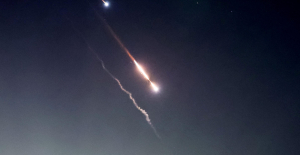 Iran's attack on Israel: these false, misleading images spreading on social networks
Iran's attack on Israel: these false, misleading images spreading on social networks New generation mosquito nets prove much more effective against malaria
New generation mosquito nets prove much more effective against malaria Covid-19: everything you need to know about the new vaccination campaign which is starting
Covid-19: everything you need to know about the new vaccination campaign which is starting The best laptops of the moment boast artificial intelligence
The best laptops of the moment boast artificial intelligence Amazon invests 700 million in robotizing its warehouses in Europe
Amazon invests 700 million in robotizing its warehouses in Europe Switch or signaling breakdown, operating incident or catenaries... Do you speak the language of RATP and SNCF?
Switch or signaling breakdown, operating incident or catenaries... Do you speak the language of RATP and SNCF? Transport in Île-de-France: operators are pulling out all the stops on passenger information before the Olympics
Transport in Île-de-France: operators are pulling out all the stops on passenger information before the Olympics Radio audiences: France Inter remains firmly in the lead, Europe 1 continues its rise
Radio audiences: France Inter remains firmly in the lead, Europe 1 continues its rise Russian cyberattacks pose a global “threat”, Google warns
Russian cyberattacks pose a global “threat”, Google warns A new Lennon-McCartney duo, more than 50 years after the Beatles split
A new Lennon-McCartney duo, more than 50 years after the Beatles split The Curse vs Immaculée: two thrillers but only one plot
The Curse vs Immaculée: two thrillers but only one plot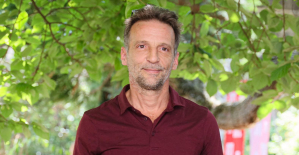 Mathieu Kassovitz adapts The Beast is Dead!, the comic book about the Second World War and the Occupation by Calvo
Mathieu Kassovitz adapts The Beast is Dead!, the comic book about the Second World War and the Occupation by Calvo Goldorak 'has never lived so much as now'
Goldorak 'has never lived so much as now' Skoda Kodiaq 2024: a 'beast' plug-in hybrid SUV
Skoda Kodiaq 2024: a 'beast' plug-in hybrid SUV Tesla launches a new Model Y with 600 km of autonomy at a "more accessible price"
Tesla launches a new Model Y with 600 km of autonomy at a "more accessible price" The 10 best-selling cars in March 2024 in Spain: sales fall due to Easter
The 10 best-selling cars in March 2024 in Spain: sales fall due to Easter A private jet company buys more than 100 flying cars
A private jet company buys more than 100 flying cars This is how housing prices have changed in Spain in the last decade
This is how housing prices have changed in Spain in the last decade The home mortgage firm drops 10% in January and interest soars to 3.46%
The home mortgage firm drops 10% in January and interest soars to 3.46% The jewel of the Rocío de Nagüeles urbanization: a dream villa in Marbella
The jewel of the Rocío de Nagüeles urbanization: a dream villa in Marbella Rental prices grow by 7.3% in February: where does it go up and where does it go down?
Rental prices grow by 7.3% in February: where does it go up and where does it go down? Europeans: the schedule of debates to follow between now and June 9
Europeans: the schedule of debates to follow between now and June 9 Europeans: “In France, there is a left and there is a right,” assures Bellamy
Europeans: “In France, there is a left and there is a right,” assures Bellamy During the night of the economy, the right points out the budgetary flaws of the macronie
During the night of the economy, the right points out the budgetary flaws of the macronie Europeans: Glucksmann denounces “Emmanuel Macron’s failure” in the face of Bardella’s success
Europeans: Glucksmann denounces “Emmanuel Macron’s failure” in the face of Bardella’s success These French cities that will boycott the World Cup in Qatar
These French cities that will boycott the World Cup in Qatar Champions League: semi-final schedule revealed
Champions League: semi-final schedule revealed Serie A: AS Roma extends Daniele De Rossi
Serie A: AS Roma extends Daniele De Rossi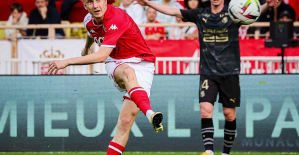 Ligue 1: hard blow for Monaco with Golovin’s premature end to the season
Ligue 1: hard blow for Monaco with Golovin’s premature end to the season Paris 2024 Olympics: two French people deprived of the Olympic Games because of a calculation error by the international federation?
Paris 2024 Olympics: two French people deprived of the Olympic Games because of a calculation error by the international federation?





